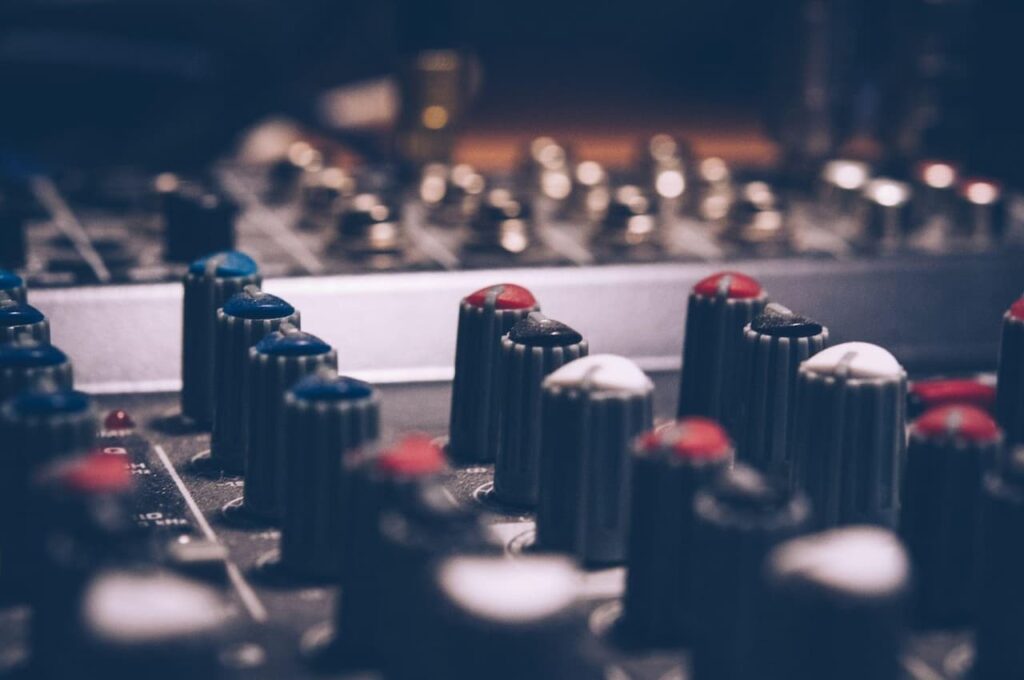If you’re passionate about producing music and creating beautiful soundscapes, then you’ll want to learn all the ins and outs of this fascinating field. Music production is a multifaceted subject that covers every aspect of songwriting—discovers what it takes to become a successful music producer!
What Is Music Production?
Music production is a multifaceted endeavor, from songwriting and composition to recording, sound design, mixing, and mastering. An experienced music producer with expertise in both the creative side of things as well as technological know-how must oversee each step for professionally recorded pieces that will eventually be distributed to the public.
With their musical knowledge and project management abilities combined with an understanding of technical facets such as mixing and recording techniques, producers are crucial for creating high-quality tracks or records.
What are a Music Producer’s Responsibilities?
An experienced music producer, also known as a record producer, is essential in creating the perfect musical recording. From single tracks to entire albums, they have an incomparable knowledge of studio production and an understanding of how to arrange songs in order to create something entirely unique. A great music producer takes responsibility for leading all creative and technological elements involved so that their end product reflects excellence.
A music producer is tasked with a variety of duties, including recruiting talented musicians and locating the perfect studio. Furthermore, they manage workflows and offer feedback on performances in the recording studio. Some even get to dabble in songwriting or composition! On top of that, when it comes to film production specifically, producers are usually responsible for selecting songs while composers write the score. The ultimate goal? To produce outstanding quality tunes or albums, everyone can enjoy!
The Difference Between a Recording Engineer and a Music Producer
When producing music in the recording studio, a creative partnership is often formed between producers and audio engineers. The soundboard operator’s highly technical role is complemented by the producer’s artistic vision; while “sound engineer” and “recording engineer” both refer to someone with expertise in audio engineering, it should be noted that sound engineers work primarily with live performances, whereas recording engineers specialize in studio production.

Exploring the Six Stages of Music Production
Crafting music is a journey that differs based on the artist or band. It may take place in an expensive studio, utilizing your home audio gear, or someplace else entirely. Regardless of how comprehensive and costly the process is, it almost always involves these six steps:
- Songwriting. Have you ever wanted to learn how to craft a song? A songwriter is a perfect professional for such an undertaking! They are creative virtuosos that develop music and lyrics together as one harmonious package- with melody, harmony, and rhythm acting in unison. Lyricists focus exclusively on putting words onto paper, while songwriters compose the whole art piece.
- When it comes to musical arrangement, this involves the way instruments, and vocal lines are arranged within a song. It’s not uncommon for tracks to have an increase in energy and dynamism by introducing new sounds, harmonies, or even additional production elements as the tune progresses. This task is often given over to music arrangers in classical pieces. The arrangement is all about adding variety during each part of the piece – beginning, middle, and end – so that listeners can feel engaged throughout your composition!
- To track a song is to make an audio recording of it in the studio with assistance from a sound engineer. Through tracking, each instrument and vocal part can be recorded on separate tracks for maximum control over different components during post-production editing. This allows you to adjust levels as needed for optimal sonic quality.
- In the editing stage, you will refine your song to its utmost potential. You may rearrange sections of the track, adjust pitch levels, and add in crossfades for a consistent flow. It’s also essential to incorporate effects such as bass boosts, synth sounds, or reverb into your composition at this stage. The purpose of editing is simple: maximize the quality and performance of your recording!
- Once all the tracks from tracking have been gathered, it’s time to mix them together into one masterful product. Whether that be in mono, stereo, or surround sound, a mixing engineer will then utilize equalization and compression techniques to create a balance between each track. Of course, depending on the project and clientele involved – music producers or recording artists may choose to involve themselves throughout this stage of production.
- To create a finished, polished version of your music for distribution on CD, vinyl, or the web – mastering is key. Through this final process, you can ensure that you will have the highest quality possible recording of your song.
The last stage of the mixing process involves a mastering engineer. He or she will give your album an extra layer of polish – making sure all songs sound like they belong together and perfecting their tone. This also entails confirming seamless transitions, equalizing levels across songs, and verifying that each song sounds great on any playback system. Mastering is the final piece in creating a professional-sounding collection of tracks!
Conclusion
The path to becoming a successful music producer is a long and arduous one. It requires hours of practice, knowledge of the technical aspects of recording music, as well as relationships with other industry professionals in order to make it big. You can get closer to your goal through the six stages mentioned above!